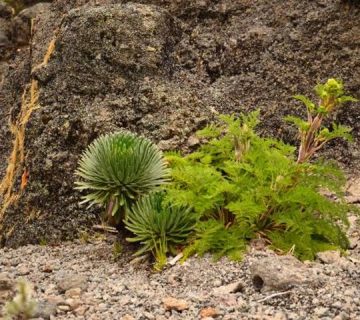Eco-tourism Benefits For Kilimanjaro’s Local Communities
Exploring the Heart of Tanzania with Purpose and Passion
Nestled amidst the clouds, the majestic Mount Kilimanjaro is not just a global icon of adventure but also a beacon of hope and prosperity for the local communities at its base. At the Kilimanjaro Centre for Trekking and Ecotourism (KCTE), we understand that the essence of travel extends beyond the thrill of conquering peaks. It’s about making meaningful connections and substantial contributions to the local environment and its residents. In this blog post, we will explore the transformative power of eco-tourism and how it has reinvented the economic landscape for the communities surrounding Mount Kilimanjaro.
The Ripple Effect of Eco-tourism
A Gateway to Sustainable Development
Eco-tourism is not just a buzzword; it’s a lifeline for many local economies, especially those surrounding natural wonders like Kilimanjaro. By choosing eco-friendly travel options, tourists contribute directly to the preservation of the area’s natural and cultural heritage. This form of tourism ensures that visitors not only witness the beauty and splendor of Kilimanjaro but also play a vital role in its conservation.
Employment and Entrepreneurship Opportunities
The influx of eco-tourists has spurred numerous employment opportunities for the local population. From mountain guides and porters to hospitality and service industry professionals, eco-tourism has become a significant employment generator. But the benefits don’t stop at job creation. Many locals have embraced entrepreneurship, opening lodges, tour companies, and craft shops that adhere to sustainable practices. These businesses not only flourish but also drive community-wide economic growth.
Education and Empowerment Through Eco-Tourism
Enhancing Educational Resources
Eco-tourism revenues have been instrumental in enhancing educational facilities in Kilimanjaro’s local communities. Schools have been renovated and equipped with better resources, which in turn, boosts attendance and educational attainment. Children and young adults gain access to quality education, preparing them to take on roles that contribute further to the region’s sustainable development.
Fostering Environmental Awareness
One of the most significant impacts of eco-tourism is the heightened environmental awareness it fosters among local residents and visitors alike. Educational programs and community workshops focus on conservation efforts and teach sustainable practices to preserve Kilimanjaro’s delicate ecosystem. This knowledge not only helps in safeguarding the environment but also empowers the local community to advocate for sustainable practices.
Conservation Efforts Spearheaded by Eco-Tourism
Wildlife Protection Initiatives
Kilimanjaro is home to diverse species of flora and fauna, some of which are endemic to the region. Eco-tourism has played a crucial role in funding wildlife conservation projects and anti-poaching initiatives. These efforts ensure the protection of biodiversity and promote a balanced ecosystem, making Kilimanjaro a sanctuary for wildlife.
Reforestation and Ecosystem Restoration
Deforestation and land degradation pose significant threats to the ecological balance of the Kilimanjaro region. Through eco-tourism, funds are allocated for reforestation projects and sustainable agriculture practices that prevent further degradation and promote the restoration of ecosystems. These initiatives not only support wildlife but also contribute to the global fight against climate change.
Building a Resilient Community
Healthcare Improvements
The health of the local community is paramount for a sustainable future. Eco-tourism revenues help improve healthcare services by funding clinics and health outreach programs. Better healthcare ensures a healthier workforce, paving the way for sustained economic growth and a higher quality of life for the community members.
Cultural Preservation and Respect
Eco-tourism encourages the preservation and celebration of local cultures and traditions. Tourists engage with the community, learn about their ways of life, and gain a deep appreciation for their customs and beliefs. This cultural exchange enriches the tourists’ experiences and boosts the community’s pride in their heritage.
Why Choose Kilimanjaro Centre for Trekking and Ecotourism (KCTE)?
At KCTE, we are committed to providing an authentic and sustainable travel experience that benefits both our clients and the local communities. By booking your Kilimanjaro climbing adventure with us, you are choosing a partner who prioritizes eco-friendly practices and community development. Join us to experience the majestic Kilimanjaro and contribute to a sustainable future for its surrounding communities.
FAQs
Q1: How does eco-tourism benefit the environment?
Eco-tourism helps in conserving the environment by funding conservation projects and promoting sustainable practices that reduce environmental impact.
Q2: Can eco-tourism actually help in preserving local cultures?
Absolutely! Eco-tourism involves respectful cultural exchanges that help preserve and celebrate local traditions and customs by providing them a platform to thrive and be appreciated.
Q3: How does eco-tourism contribute to local economies?
Eco-tourism generates employment, fosters entrepreneurship, and funds improvements in education and healthcare, thus boosting the local economy.
Q4: What makes KCTE different from other tour operators?
KCTE stands out for its commitment to sustainability, community development, and providing an authentic, respectful experience that benefits both the traveler and the local communities.
Conclusion: Climb with Purpose, Reach New Heights with KCTE
Embrace the spirit of adventure and join us at Kilimanjaro Centre for Trekking and Ecotourism. Experience the breathtaking beauty of Kilimanjaro and be a part of a greater cause. Your journey with us is more than just a climb; it’s a step towards sustainable development and a testament to the power of responsible travel. Book your eco-friendly Kilimanjaro adventure today and be a part of a transformative journey that enriches both you and the local communities!




